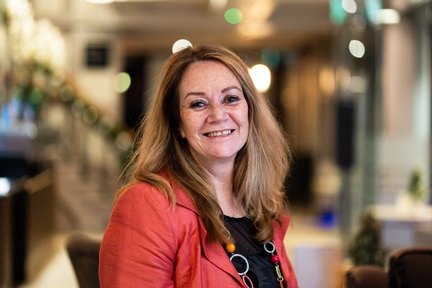Ministers 'knowingly' underfunded 'free childcare' and knew parents would face higher costs
New documents reveal ministers were "shamelessly" aware they were underfunding the government's ‘free childcare’ offer and their actions would make parents face higher nursery costs and stop mums returning to work.
![]() Credit: Shutterstock
Credit: Shutterstock
Private government documents reveal ministers knew the 30 hour ‘free childcare’ funding rate for 2020/21 given to councils, was less than two-thirds of the real cost civil servants had estimated.
Working parents of three and four-year-olds in England are entitled to 30 hours’ free childcare a week, but ministers decided not to fund the scheme adequately, knowing it would cause price rises for parents.
Shortfall of £2.60 per child per hour
After a two-year battle for answers involving Freedom of Information (FOI) requests with the Department for Education (DfE), the Early Years Alliance, which represents nurseries, obtained private briefing documents which reveal a funding shortfall of £2.60 per child per hour.
A government briefing document reveals that in 2015, DfE civil servants estimated the cost of offering a government-funded childcare place would reach £7.49 per child per hour by 2020-21 but according to independent analysts Ceeda, the average 2020/21 funding rate was just £4.89.
A funding shortfall of £2.60 per child per hour equates to £2,964 per child over a year for children receiving 30-hour ‘free childcare’.
Neil Leitch, the chief executive of Early Years Alliance, said: “What these documents confirm is that this government, for all its rhetoric about levelling up, improving life chances and giving all children the best possible start in life, has been shamelessly, knowingly underfunding our sector for years.
“They knew that the level of funding they gave to us would impact on quality. They knew it would put prices up for parents. And they did it anyway.”
Higher prices for parents ‘could stop parents returning to work’
The briefing document ‘Early Years Spending Review Scenarios’ states: ‘Fully funding them all is not affordable – by 2020-21 it would be a 3-4 year old rate of £7.49, and the potential cost for the uplift alone would be over £2bn.
'We will make reforms and expect providers to become more efficient in order to reduce this cost.'
It goes on to state: ‘Providers may, therefore, increase prices for younger children – potentially by as much as 30%. This could stop parents returning to work while their children are younger.
'A 10% reduction in the cost of childcare might lead to a 1.4% increase in the employment rate for married mothers with pre-school age children.'
'We will strip out funding' for food and nappies
The briefing document exposes a deliberate strategy of passing costs on to parents, stating: ‘We will strip out funding for consumables (food, nappies) – and set an expectation that providers charge parents for these.’
The government expected its underfunding would also force nurseries to work to maximum adult-to-child ratios which could result in poorer quality childcare.
Even though lower child-adult ratios are associated with higher quality early years provision, the document states the government expected ‘providers to move, over time, to full use of statutory staff ratios’.
After the 2015 Spending Review, the government introduced an annual funding rise of just £300m per year, which came into effect in 2017.
The Early Years Alliance first submitted its FOI request in 2018 asking for proof that the early years funding rates introduced in 2017 had been calculated to be enough to cover the rising cost of delivering childcare places.
The DfE has now rejected a second FOI request by the Early Year Alliance in April 2021 asking for proof that the 1.2 per cent rise in funding for 2021/22 covers the cost to the sector of rises in the national minimum and living wages from April, as ministers have repeatedly claimed.
Affordability petition gathers over 100,000 signatures
A government e-petition calling for an independent review into childcare affordability and funding has reached over 100,000 signatures.
The petition was created by Joeli Brearley, the founder and chief executive of Pregnant Then Screwed. She said: ‘We have the second most expensive childcare system in the world. A full time place costs, on average, £14,000 per year, making it completely unaffordable for many families.
“Parents are forced to leave their jobs or work fewer hours, which has a negative impact on the economy and on child poverty.”
Sir Peter Lampl, founder of the Sutton Trust, said: “Currently, childcare in the UK is amongst the highest in the world, which means that many parents are unable to access good-quality, consistent provision for their child.
"The perseverance shown by the Early Years Alliance to get answers from the government on their early years policy is admirable.
"It’s disappointing to have confirmation that the government were aware that the current early years funding would not be enough to fully support their scheme, but that it was implemented anyway."
Cllr Antoinette Bramble, chair of the LGA’s children and young people Board, said: “We have long highlighted that the early entitlements are underfunded.
"This underfunding, alongside a fall in income from parents during lockdowns, was a key factor in the challenges face by early years providers throughout the pandemic as they worked hard to support children and families.
“The forthcoming Spending Review should properly resource all early years settings.”
Latest News
 24-Apr-24
Find out the top nurseries in 2024
24-Apr-24
Find out the top nurseries in 2024
 06-Jun-23
UK's top nurseries in 2023 revealed
06-Jun-23
UK's top nurseries in 2023 revealed
 16-Dec-22
Winter Wonderland: Ice sculptures, aerial acrobatics and white knuckle rides
16-Dec-22
Winter Wonderland: Ice sculptures, aerial acrobatics and white knuckle rides
 28-Nov-22
5 mins with Caroline Wright, early childhood director at Bright Horizons
28-Nov-22
5 mins with Caroline Wright, early childhood director at Bright Horizons
 25-Nov-22
Camilla gives nursery children Paddington bears left as tribute to Queen Elizabeth II
25-Nov-22
Camilla gives nursery children Paddington bears left as tribute to Queen Elizabeth II